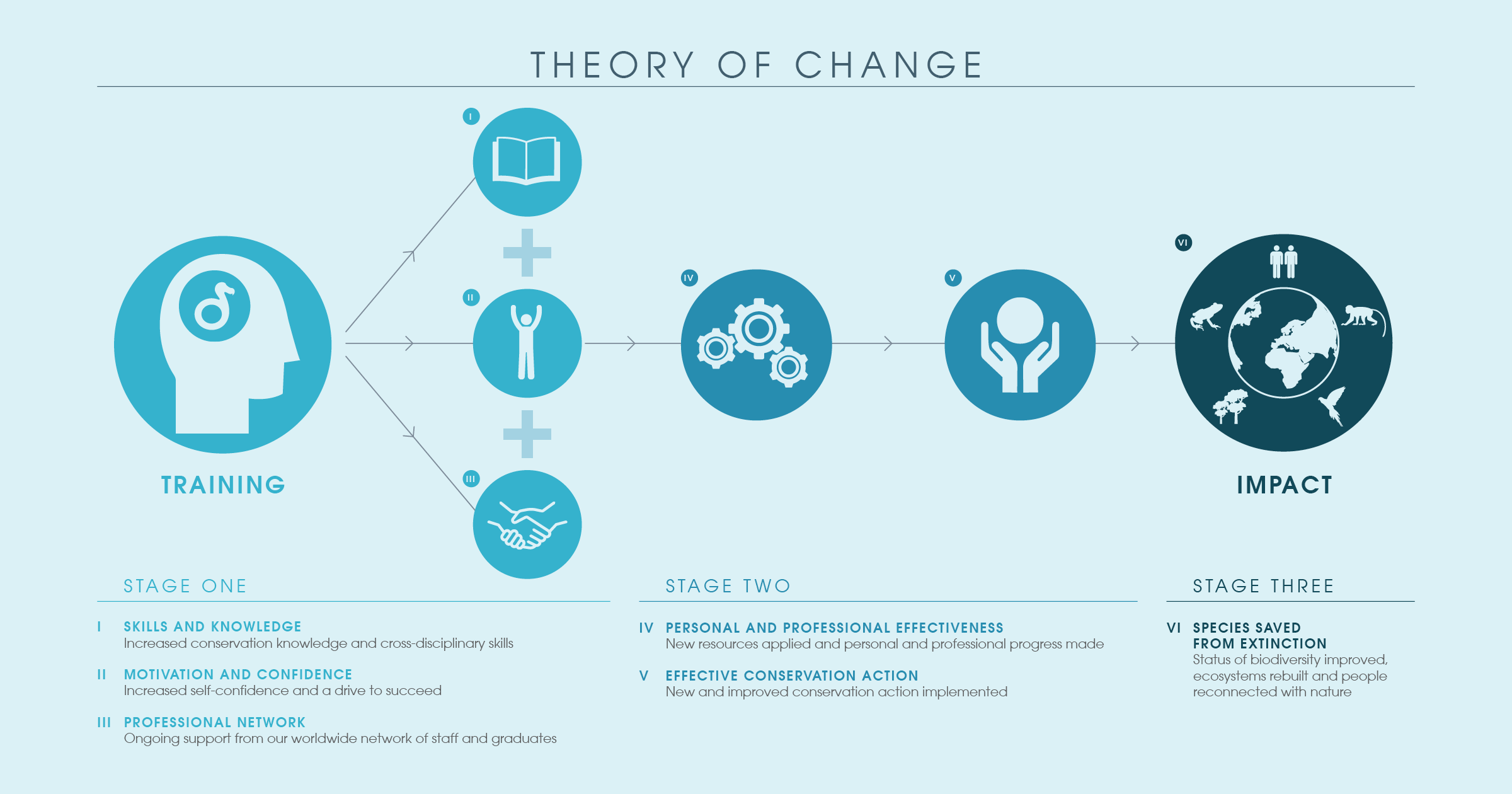Through our monitoring and evaluation framework, evidence of the difference our training can make to people personally and professionally is collected and provides us with a glance into individual transformations.
The importance of evaluation to our training programme is no exception, however, it is uniquely challenging. Unlike the outcomes of many of our other conservation actions, the outcomes of training can be much more difficult to define and measure. In 2016, we set out to overcome these challenges and develop a system that systematically evaluates the difference our training programme makes to individuals and their work (a project generously funded by the Balcombe Trust).
To do this, we first created a theory of change, i.e. a model that describes the pathway of change we expect from an individual completing a training course to achieving conservation goals. The purpose of this theory of change is to guide the evaluation process, enabling us to identify what we need to measure at each step, in order to evaluate progress and success.
At each step, we ask our trainees to complete a short online survey that includes both quantitative and qualitative data collection methods. The quantitative data allows us to assess if we are achieving the change we expect, and the qualitative data allows us to capture any unexpected or unmeasurable change an individual might experience.
Over time, it becomes increasingly challenging to attribute change to a training course, and so our focus shifts to measuring the extent to which training contributes to progress made and success achieved. The more we learn, the more refined our theory of change becomes.
This system provides us with a wealth of information about the difference our training programme makes, enabling us to keep exploring new ways of maximising our impact.